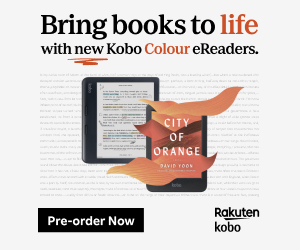
What I Hate About Being a Reader
Most serious readers love that they are serious readers, and the compensations of a robust reading life are much discussed. But there are also aspects of reading that are undeniably frustrating. Here are mine, in no particular order. Please add yours in the comments.
1. Time
Reading seriously takes an inordinate amount of time. Music and movie lovers can easily run through 5-7 albums or films in a week as part of a relatively normal existence. For a book-lover, getting through that many in a week results in a near monastic experience. This leads to another problem…
2. Knowing There is So Much You Haven’t Read
3. Feeling Out of Place
It’s one thing to sense that you are missing some great and important books, but it’s another thing entirely to feel like your passion is antiquated. As much self-talk as we do to affirm that books and reading still matter, we know that they are not in the main of cultural life. That doesn’t mean they don’t matter or that we are relics of some kind, but knowing that culture doesn’t care about what we care about can be deflating.
4. Reading Alone
Reading can be doubly isolating. First, it is inherently a solitary practice. But there is also the secondary isolation that comes from reading’s cultural marginalization: the difficulty of finding people who not only read as you do, but read what you do. I think most serious readers have a desire to discuss what they’ve read with others, but those others can be so hard to find. The internet has been a boon for this, but I think we also know that online discussion doesn’t compare to in-person discussion.
5. Books Are Hard to Talk About
Say you do have an hour to talk, in the flesh, with someone who has read a book you have recently read. You then encounter another problem: books are difficult to discuss. The best ones, the ones you are most likely to talk about, are complicated and dense. Names, details, and nuance fade all too quickly. Often, chances like these become gush-fests/slam-parties. I’m not saying we want these conversations to be graduate seminars, but much of the time it seems as if what we think and feel about a book eludes our ability to articulate it.
6. Fleeting Favorites
7. Translation
This is the unavoidable problem of reading widely. How can you have any confidence that the translation is anything like the original? A splinter of doubt troubles the international (hell even intra-national) reader. You need only thumb through the various available translations of The Iliad to get a sense of what it is you don’t even know you are missing. It’s an unsolvable riddle.
8. The Joy/Edification Paradox
Do we read for pleasure or do we read to be improved? The answer is of course yes, but that actually doesn’t answer the central question this paradox poses? Why do we read? Is it enough to be entertained? Is it enough to be educated? Will reading 40 books a year really be twice as good as reading 20 books a year? I might read a lot, but how well do I read really?
____________________________
Sign up for our newsletter to have the best of Book Riot delivered straight to your inbox every week. No spam. We promise.
To keep up with Book Riot on a daily basis, follow us on Twitter, like us on Facebook, , and subscribe to the Book Riot podcast in iTunes or via RSS. So much bookish goodness–all day, every day.











